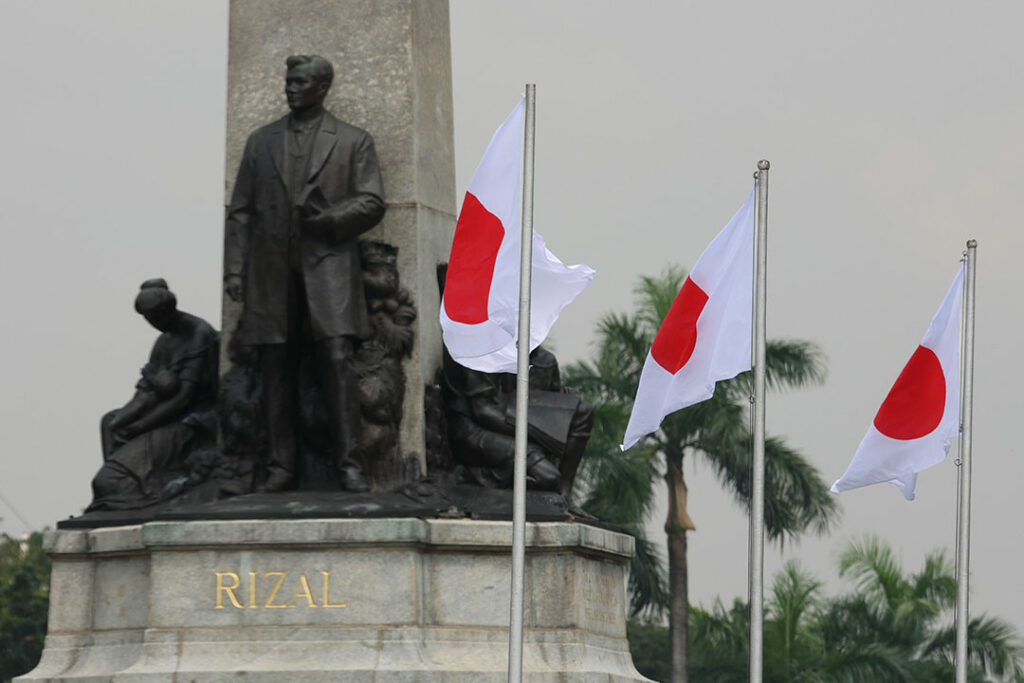




January Economic Update: Growth slows, prices rise
 DOWNLOAD
DOWNLOAD

Inflation Update: Up, up, and away?
 DOWNLOAD
DOWNLOAD

Quarterly Economic Growth Release: Growth takes on a slower pace
 DOWNLOAD
DOWNLOAD


PH, Japan ink PHP93B loan deals

The Philippines and the Japan International Cooperation Agency (JICA) on Tuesday signed two loan agreements worth a total of ¥250 billion (around P93 billion) for the ongoing construction of the Metro Manila Subway and a road project that would include the longest tunnel in the country.
Finance Secretary Ralph G. Recto and JICA Philippines Chief Representative Takema Sakamoto on Tuesday signed two official development assistance (ODA) loan deals for the Dalton Pass East Alignment Road Project and the Metro Manila Subway Project (Phase 1), which are part of the Marcos administration’s infrastructure flagship projects.
The ¥100-billion loan agreement covers the first tranche for the Dalton Pass East Alignment Road Project that will connect San Jose City, Nueva Ecija to Aritao, Nueva Vizcaya.
According to JICA, the project aims to construct an alternative road bypassing the existing Dalton Pass, which is often closed due to natural calamities. It will involve the use of advanced Japanese technologies for the construction of a mountain tunnel and bridges.
“The Dalton Pass East Alignment Road Project, which includes the longest tunnel in this country, is a game-changing initiative,” Mr. Sakamoto said.
“It can improve regional connectivity and boost economic activities. The success of this project will make the difficulties and safety concerns in traversing the existing Dalton Pass a thing of the past,” he added.
The project, which is under the Department of Public Works and Highways (DPWH), is expected to be completed by March 2032.
“Regarding the Dalton Pass project, connecting roads should be constructed by DPWH in a timely manner,” Mr. Sakamoto said.
Also, the Department of Finance and JICA signed the third tranche of the loan agreement worth ¥150 billion for the first phase of the Metro Manila Subway Project, which is targeted for completion by November 2029.
“Although we are still facing various challenges, such as RoW (right-of-way acquisition), this project is already gaining a strong momentum. We cannot slow or stop its progress. In such regard, we definitely expect that this third tranche loan can accelerate the realization of this epoch-making subway line,” Mr. Sakamoto said.
The first phase of the 25.3-kilometer subway will have 17 stations from Mindanao Avenue through the Food Terminal, Inc. and end at the Ninoy Aquino International Airport Terminal 3.
The country’s first subway system is expected to ease traffic congestion and reduce air pollution emitted by vehicles in Metro Manila.
Mr. Sakamoto said the success of these two projects “can only be guaranteed by the full commitment and strong responsibility of the Philippine government.”
“Appropriate O&M (operations and maintenance) after the completion should be ensured. RoW or other challenges, such as timely and proper decision making and payment, are also to be managed well,” he said.
The loan deal for the first tranche for the Metro Manila Subway Project amounting to P38.8 billion (¥104.5 billion) was signed in 2018, while the deal for the second tranche worth P94.1 billion (¥253.3 billion) was sealed in 2022.
The loans have an annual interest rate of 0.3% for the project and 0.2% for consulting services, with a repayment period of 40 years plus a 10-year grace period. — B.M.D.Cruz
This article originally appeared on bworldonline.com





 By BusinessWorld
By BusinessWorld